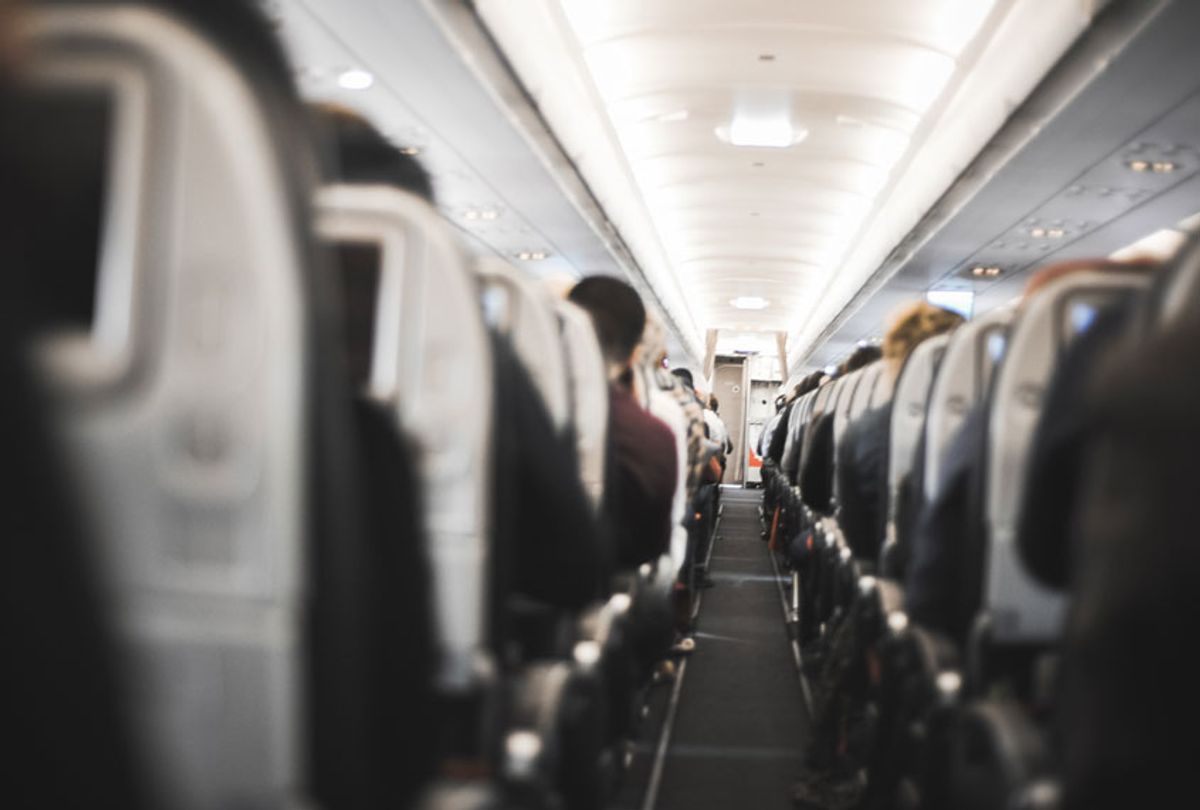It's OK for fully vaccinated people to travel domestically again without quarantining, so long as they wear a mask and maintain social distancing guidelines, the Centers for Disease Control and Prevention announced April 2, 2021 in its updated guidelines for travel.
The agency advises that people still wash or sanitize their hands frequently when traveling. The guidelines also provide guidance for other modes of transportation other than air travel, and are for domestic travel. The CDC recommends delaying international travel for fully vaccinated people.
The agency also advises delaying domestic travel for those who are not fully vaccinated. And, the updated travel guidance comes only days after CDC Director Rochelle Walensky reminded people that mask-wearing is still essential and that the U.S. is not out of danger.
Fully vaccinated means that two weeks have passed since people have received the full dose of vaccine. That is two shots for those who have been vaccinated with the Pfizer or Moderna vaccines. For those who have been vaccinated with the Johnson & Johnson vaccine, that is one shot. Studies have shown that it takes the body two weeks to develop the full immune response to the vaccine, regardless of which vaccine they receive.
More than 50 million people have been fully vaccinated, and more than 100 million people in the U.S. have had at least one dose of one of the three COVID-19 vaccines as of April 2, 2021. Evidence continues to show that vaccination with the Pfizer, Moderna and Johnson & Johnson vaccines offers very high levels of protection against the coronavirus. And, research is showing that the risk of vaccinated people spreading the disease to others is low. However, there is still a small risk that vaccinated people could transmit the disease to others.
While this is good news to those who want to travel – as well as the airline industry and tourist destinations – people are still confused about what they can and cannot safely do. As an infectious disease doctor, I've been fielding a lot of questions from my patients as well as my friends and family about what someone is allowed to do once vaccinated. Do vaccinated people need to wear masks, socially distance and avoid travel?
If you are fully vaccinated – that is, if you are more than two weeks out from receiving both doses of the Pfizer or Moderna vaccines or one dose of the Johnson & Johnson – you can visit other fully vaccinated people without socially distancing or wearing masks, according to the CDC guidelines. You can even visit indoors with unvaccinated people from a single household who are at low risk for severe COVID-19 disease without wearing masks or physically distancing.
The CDC does suggest you be tested if you develop symptoms that could be COVID-19. You should then stay isolated until you are shown to be uninfected. If you are fully vaccinated, you should still avoid social settings that include multiple unvaccinated households. And, you should avoid medium to large crowds because of the increased risk.
You also should continue to wear a well-fitted mask, wash your hands frequently and maintain physical distance when outside the home. Worshiping indoors at a synagogue, mosque or church is still not advisable unless all attending are vaccinated.
With regard to the new guidelines, the CDC says that vaccinated people should still monitor themselves before and after travel and wash or sanitize their hands frequently.
So in the face of continued pandemic transmission and new viral variants, we all need to remain vigilant and observe good health practices even after being vaccinated. However, it is very good news that we can prudently lift some of the restrictions that have so limited our ability to be with loved ones. This is especially good news for seniors who are particularly vulnerable to the downside of isolation – and the loved ones who are keen to visit them.
William Petri, Professor of Medicine, University of Virginia
This article is republished from The Conversation under a Creative Commons license.



Shares